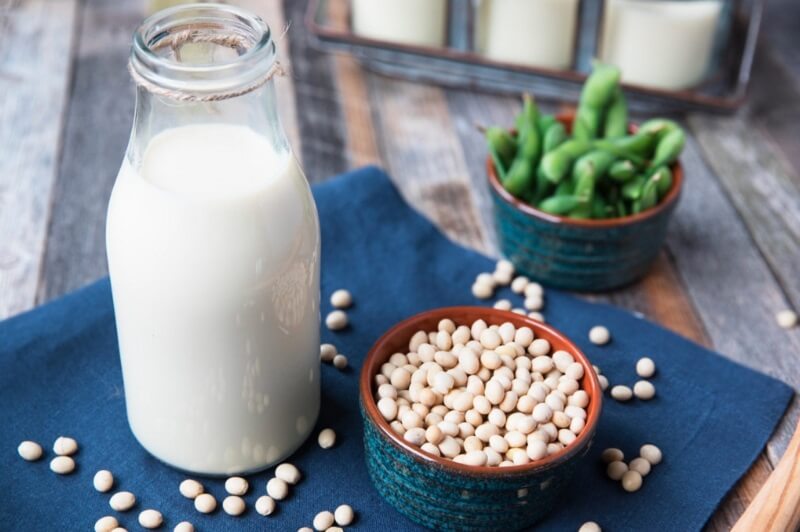Did you know that around 60% of mothers stop breastfeeding before they originally planned in the United States?
Although there are benefits to breastfeeding, some mothers struggle to keep up their supply or have issues with producing. If you aren’t going to breastfeed or want to supplement you will need to learn about the types of formula to buy.
Continue reading to discover the different types and forms of infant formula that you can buy to nourish your little one!
Cow’s Milk Formula
One of the most common types of infant formula that you will encounter is cow’s milk. Cow’s milk formula has a main ingredient of cow milk, but it also gets treated with other ingredients to make this formula easy to digest. Many people say that the cow’s milk formulas closely resemble breastmilk because of the nutrients.
Even goat milk formula has been used to feed infants under 1 year of age. This is a great substitute if your child is not adjusting well to the cow’s milk formula.
Fortunately, most infants have a positive response to cow milk formula and enjoy their flavor.
Hydrolyzed Formula
If you want to give your baby optimal health, you should consider buying hydrolyzed formulas. The hydrolyzed formula consists of a protein that gets broken down into smaller segments, this is hydrolyzation. Many companies market hydrolyzed formulas as calm and gentle recipes because they are easy to digest.
When babies have a negative reaction to cow’s milk formulas, this is the next best option to try. Protein allergies have led to the increase in the availability of hydrolyzed formula. Another reason to consider hydrolyzed formula is if your baby is suffering from acid reflux issues.
Mothers that want to supplement breastfeeding with formula should try this type of formula. Since the proteins are easier to digest, your baby won’t have as difficult of a time adjusting to their new meal.
Soy Formula
Many people drink soy milk to avoid milk allergies, dairy sensitivities, and animal products. Soy milk is a perfect plant-based formula option that is gentle on baby tummies. The soy protein is mixed with carbohydrates and there isn’t any lactose included. When babies are unable to metabolize the sugar (lactose) in milk, the doctors and pediatricians will recommend this option.

If you feed your child soy formula, make sure that they don’t have any reactions after the first few meals. If they have a soy allergy, they could break out in hives, have trouble breathing, or get digestive issues.
Soy milk formulas are typically only recommended when the parents want the child on a plant-based diet.
Specialized Formula
When medical needs arise, certain formulas are better for some infants than others. Specialized formulas are made to help babies with medical conditions. The ingredients vary for each of the specialized formulas so that you can get the nutrients that your child needs. When you switch to a specialized formula, it will likely involve a conversation with the doctor or pediatrician.
These formulas can help fix nutrient deficiencies and make other medical issues less severe. Different kinds of milk, proteins, and carbohydrates are used to create custom formulas that will meet your child’s needs.
Since this type of formula includes enhanced ingredient lists, the costs of the formula might be a bit higher when compared to other options.
Powder Form
The powder form is one of the most common types of baby formula that you will encounter. Most people get formula in powder form because it is the most economical option. Powder formulas are affordable and there are plenty of options to choose from. If you decide to get powders, make sure that you clean the bottles fully and shake the containers before feeding your child.
One of the downsides to powder formulas, however, is that they can lack some of the nutrients that other methods of food have. If the measurements are inaccurate, your baby might not get as many nutrients as they need.
Concentrated Liquid Form
If you want to avoid measuring formulas with water, you should consider the concentrated liquid form. Concentrated liquid formulas simply need to be combined with infant drinking water and are ready to consume. The concentrate usually calls for equal parts water, but the directions might vary by brand and product.
When you use this form of formula, make sure that the liquid is consumed within 48 hours of being mixed. Even in the fridge, the milk will go bad within 2 days.
Ready-to-Use
Most people buy ready-to-use formulas for emergencies and as a backup measure. This form of formula is the most expensive to purchase, so most people supplement it into their baby’s diet. The reason that this choice is the most expensive is that the milk is already portioned in containers that your child can drink from.
These are perfect to toss in the diaper bag or the car since they don’t require refrigeration until they’ve been open. If you are planning to travel, you might want to stock up on ready-to-use formula so that you don’t have to mix bottles in the car or on the plane.
Know which Infant Formula to Buy for your Baby
Knowing the different types of infant formula will help you find the most compatible choice for your child.
Feeding your child is an intimate thing and a loving mother wants to ensure that her baby is happy and full. There are a couple of different types of formula that you can get, depending on their allergies and medical needs.
Don’t be afraid to try the various forms that formula can be bought in. The ready-to-use bottles are perfect for when you are on the road but the powder form is often the most affordable.

